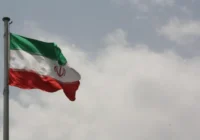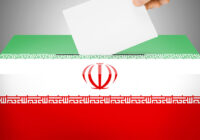The simultaneous momentum toward and away from nuclear disarmament has stalled global nuclear security efforts.
On October 6, the Norwegian Nobel Committee awarded the 2017 Nobel Peace Prize to the International Campaign to Abolish Nuclear Weapons (ICAN). The decision came as a response to ICAN’s work advocating the Treaty on the Prohibition of Nuclear Weapons (ban treaty), which was adopted by the United Nations on July 7. With the pope calling for a conference on nuclear weapons, there is definite momentum for the abolition of nuclear weapons. However, rhetoric coming from the White House as well as North Korea’s nuclear program are challenging the drive toward disarmament that began at the end of the Cold War. So, what is the state of global nuclear security?
Nuclear security is in a stagnant phase. While initiatives such as the ban treaty demonstrate a global desire to get rid of nuclear weapons, rising tensions amongst the nuclear powers and the abandonment of arms control agreements have stymied disarmament and security progress worldwide. At the same time, agreements such as the Joint Comprehensive Plan of Action (JCPOA) with Iran show that it is possible to address the problem of nuclear proliferation.
The Good
The good news is that states and non-governmental organizations are still advocating for arms control and disarmament and have made progress. The ban treaty, the newest effort at engendering disarmament, currently has 53 signatory states with three ratifications. Once 50 states ratify the treaty, it will enter into force. While this agreement has no support from states currently in possession of nuclear weapons and little support from the United States’ nuclear umbrella, this treaty still represents the most significant arms control agreement since the original Nuclear Nonproliferation Treaty (NPT) entered into force in 1970.
An outright ban on nuclear weapons represents the “rest of the world” standing up to the nuclear-armed powers and collectively stating that they want nuclear weapons gone now, not when it suits the states that have them. Furthermore, the JCPOA and the arms reductions that have occurred since the end of the Cold War have shown that arms control is still possible. The New START agreement appears to be on track for both the United States and Russia to meet their obligations by 2018, with both states already under the limit for strategic launcher and Russia reducing its strategic warhead stockpiles.
The Bad
Unfortunately, there are significant setbacks to arms control and nuclear security. Statements by President Trump indicate he may favor an abandonment of the New START treaty and expand the United States’ nuclear arsenal. Data compiled by the Federation of American Scientists suggests that the pace of arsenal reduction has slowed, with the US and Russia maintaining large nuclear stockpiles. The Iran nuclear deal also faces a new challenge from the Trump administration’s hostility toward it. Ending the agreement would have dire consequences not just for Middle East security, but for the NPT as well. The NPT has seen its only withdrawal, when in 2003 North Korea pulled out of the treaty and has since developed its own nuclear weapons. While severely out-gunned by America’s nuclear arsenal, North Korea’s program threatens the nonproliferation regime by showing that it is possible to withdraw from the NPT, develop nuclear weapons and maintain its territorial sovereignty when threatened by the US nuclear umbrella.
Not only have the departure of North Korea and slowed disarmament efforts strained the treaty system, the non-nuclear weapons states have become so frustrated with the lack of disarmament that they created an entirely new treaty — the ban treaty. There is a risk that the ban treaty will allow states to “forum shop” between it and the NPT. This would undermine the current nonproliferation framework by allowing states to choose a treaty that, while banning nuclear weapons, would allow them more leeway to acquire all of the technology and skills necessary to create nuclear weapons, often under the pretense of nuclear power generation, giving the state the capacity to build nuclear weapons without actually doing so.
The Ugly
Outside of state actors (the United States, Russia, etc.), the gravest nuclear security threat remains non-state actors acquiring and using a nuclear device or a rogue scientist selling nuclear technology to unscrupulous parties. The latter has happened before: It is believed that Pakistani scientist Abdul Qadeer Khan’s network played a role in the development of North Korea’s nuclear program and Syria’s attempt at an enrichment program. While nuclear terrorism has not yet occurred, there is ample evidence that non-state actors have pursued the acquisition of nuclear devices. In order to combat the spread of technology and nuclear materials, the United Nations passed Security Council Resolution 1540, which mandates that every member state enforce export controls that will prevent the exportation of sensitive goods. Unfortunately, much of the world does not have the resources or political will to enact and enforce these vital programs.
The simultaneous momentum toward and away from nuclear disarmament has stalled global nuclear security efforts. While arsenal trends and the ban treaty show that disarmament can happen, posturing from the Trump administration and North Korea have raised tensions. The imperilment of the JCPOA and several blows to the NPT make the state of nuclear security all the more perilous. In order to restore progress toward disarmament and security, the United States and Russia must recommit to bilateral disarmament efforts to show that they are serious about their NPT obligations.
North Korea must be shown that it does not need its nuclear arsenal for its survival, and the JCPOA must be extended and serve as a platform for deeper engagement between Washington and Tehran. The countries that have enacted comprehensive export control regimes must be willing to assist those that have not. One hole in the net would allow an unscrupulous actor to sneak a nuclear device or centrifuge component through. Finally, those in power must acknowledge that nuclear weapons, while playing a significant role in security policy, are not necessary and should, in time, be eliminated.
*[Young Professionals in Foreign Policy is a partner institution of Fair Observer.]
The views expressed in this article are the author’s own and do not necessarily reflect Fair Observer’s editorial policy.
Photo Credit: Svjatogor / Shutterstock.com
Support Fair Observer
We rely on your support for our independence, diversity and quality.
For more than 10 years, Fair Observer has been free, fair and independent. No billionaire owns us, no advertisers control us. We are a reader-supported nonprofit. Unlike many other publications, we keep our content free for readers regardless of where they live or whether they can afford to pay. We have no paywalls and no ads.
In the post-truth era of fake news, echo chambers and filter bubbles, we publish a plurality of perspectives from around the world. Anyone can publish with us, but everyone goes through a rigorous editorial process. So, you get fact-checked, well-reasoned content instead of noise.
We publish 2,500+ voices from 90+ countries. We also conduct education and training programs
on subjects ranging from digital media and journalism to writing and critical thinking. This
doesn’t come cheap. Servers, editors, trainers and web developers cost
money.
Please consider supporting us on a regular basis as a recurring donor or a
sustaining member.
Will you support FO’s journalism?
We rely on your support for our independence, diversity and quality.







